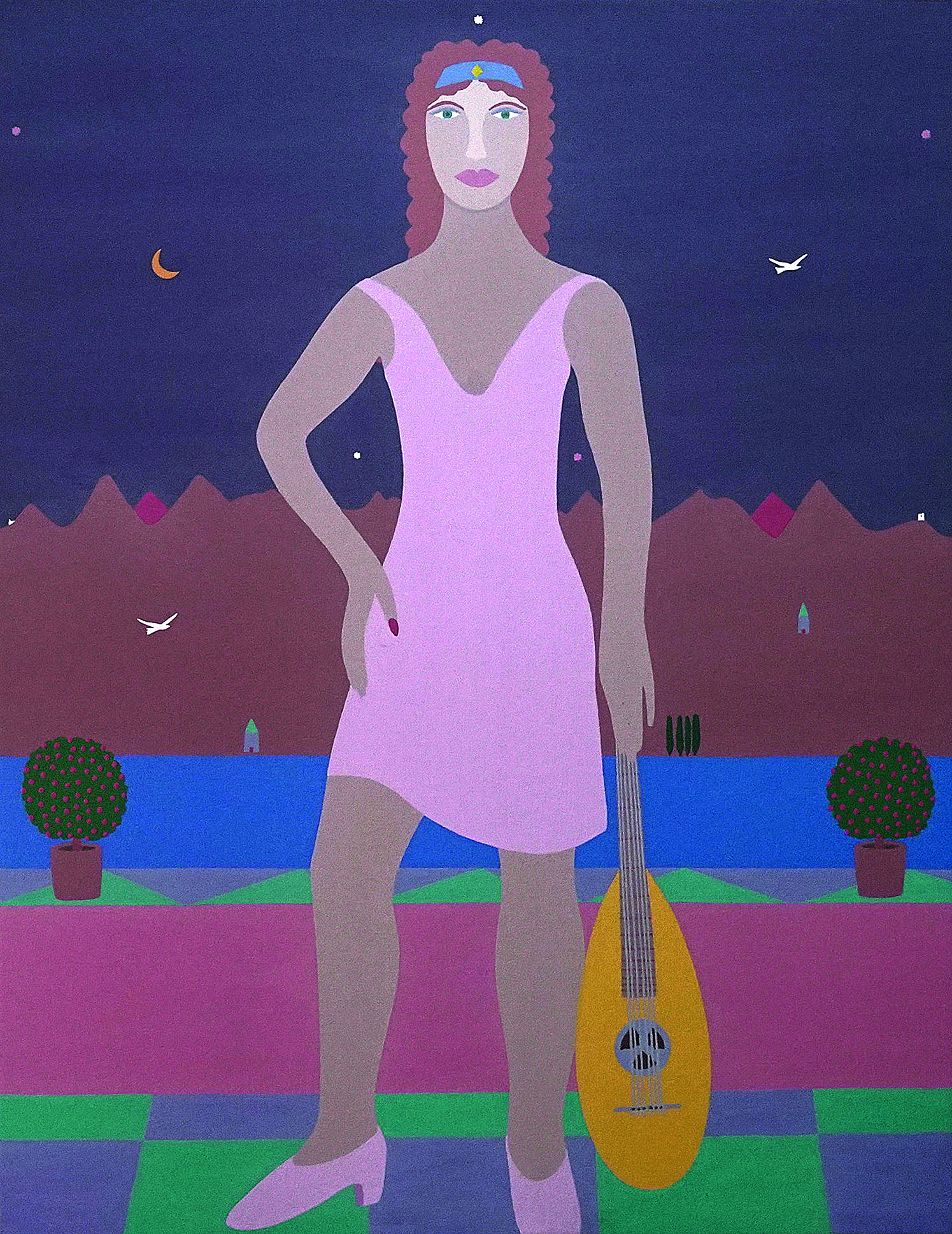Love requited in an exhibition

Having been practically raised in Greece and spending much of her time in the country her family loved like home, Rachel Howard is happy to talk about her father on the occasion of the City of Athens’ exhibition of his paintings. Rachel lost her father, Charles, in September, so the show he helped city curator and art historian Christoforos Marinos put together at the Melina Mercouri Cultural Center in Thiseio is effectively a retrospective.
Charles Howard was a war baby, born in London in 1936 to a family “with strong roots in the theater,” says Rachel. The son and grandson of actors, he took to the boards himself and came to Greece in 1959 to play in the film “Our Last Spring,” a film based on the 1938 novel “Eroica,” by Greek writer Kosmas Politis. The film was directed by Michael Cacoyannis, who was also a family friend. The first walk he took around the city center, in Syntagma, “made him feel right at home,” recounts his daughter, a journalist and travel writer whose work features in major European and American newspapers and magazines.
He ended up becoming Cacoyannis’ second assistant director and before returning to London he made a lot of friends and acquaintances, and got to know the city. During the 1967-74 Greek dictatorship that followed, meanwhile, he provided support to a lot of Greeks who fled abroad. “He developed a deep and meaningful relationship with Greece,” says Rachel.
Later on, after he started his own family, the Howards acquired a small holiday home on the island of Syros and later a permanent residence in Athens. “We lived in Kifissia for many years, renting those beautiful old houses with gardens. We had chickens and ducks in one, and a donkey in another,” she reminisces.
Charles began taking an active interest in Greek music in 1963. The first rebetiko song he heard – at the encouragement of a saleswoman in a record store – was by Vassilis Tsitsanis and it made such an impression he decided to explore the genre further. Having started buying 78 rpm records as a boy, he already had a fine collection of jazz and pre-war American blues. Over the years – thanks to painstaking research, hard work and a love for rebetiko – he came to publish 23 collections of songs that helped safeguard the authentic sound and history of the genre.
 His connection to Greece, to its people and their culture, “was a relationship with many spiritual elements,” says Rachel, and this is also evident in his artwork. “Whether they are abstracts – like the landscapes – or portraits, the ‘Greekness’ is obvious. It is in the light and the colors, it is in the sense of the country.”
His connection to Greece, to its people and their culture, “was a relationship with many spiritual elements,” says Rachel, and this is also evident in his artwork. “Whether they are abstracts – like the landscapes – or portraits, the ‘Greekness’ is obvious. It is in the light and the colors, it is in the sense of the country.”
The exhibition, titled “The Greek Summer,” comprises 54 paintings, ranging from female figures – many of them nude and cast against a blue sea background – to landscapes like the bald mountains. The paintings of the female figures have simple backgrounds, occasionally dotted with an island or two, or a small white church in the distance, reminders that these women – most of them anonymous – are experiencing the carefreeness of the Mediterranean summer.
“If there is one thing to take from Howard’s paintings, it is love: love for Greece, love for these particular people, places and cities, and ultimately love for life. With this exhibition, Greece returns that love,” says Christoforos Marinos, the show’s curator.
The show is on display through January 23 at the Melina Mercouri Cultural Center (66 Irakleidon & Thessalonikis, Thiseio, tel 210.345.2150), Tuesdays to Fridays from 11 a.m. to 7 p.m. and Saturdays and Sundays from 10 a.m. to 3 p.m. Admission is free of charge.





